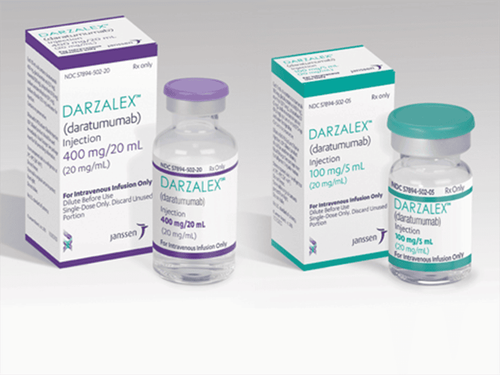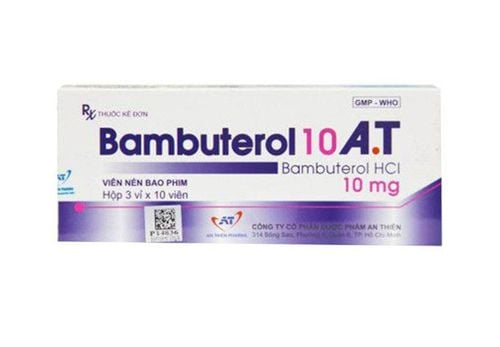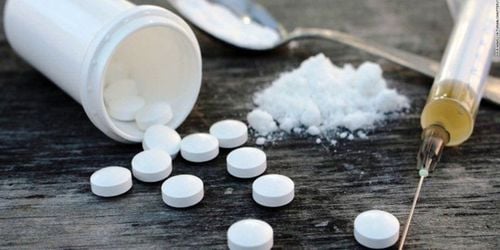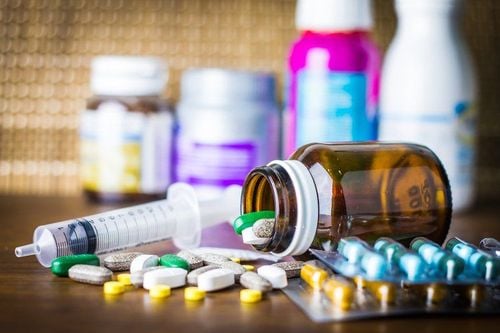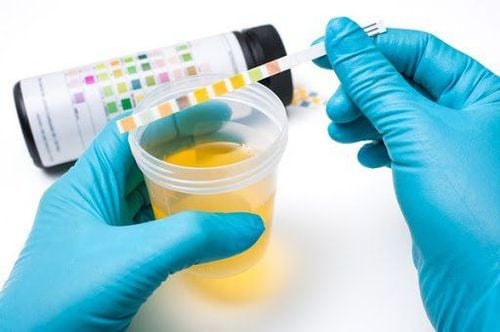This is an automatically translated article.
The article was professionally consulted by Specialist Doctor II Huynh Thi Diem Thuy - Vaccine Consultant - Pediatrics - Neonatology Department, Vinmec Central Park International General Hospital.Vaccination is of great benefit in disease prevention, but in some cases, reactions - anaphylactic reactions, can occur in children. Signs of reactions - anaphylactic reactions after vaccination can be fatal if not detected and intervened in time.
1. Signs of anaphylactic reaction after vaccination
In children, anaphylaxis is the most dangerous reaction to vaccination, potentially causing death if not detected and intervened in time.Manifestations of anaphylaxis are acute circulatory failure with cold limbs, rapid pulse, low or stuck blood pressure, shortness of breath, laryngospasm, abdominal muscle cramps or diarrhea. Greenstone.
After detecting an anaphylactic reaction, it is necessary to place the vaccinated child on his left side, immediately inject a dose of adrenaline at a dose of 0.01mg/kg body weight into the muscle. If the condition is seen in adults, 0.5 to 1ml of adrenaline can be injected.
If the condition does not improve, a booster dose can be given after 10 minutes, giving oxygen. After that, quickly transfer the patient to the nearest hospital for emergency resuscitation, monitoring and treatment.
In adults, anaphylactic reactions are rare, the most common reaction after vaccination is fatigue. Hypotonia episodes rarely occur after vaccination, if any, occur 2 to 4 hours later. For cases with severe reactions after vaccination, they need to be monitored and treated in hospitals, not at home.
In addition to the most immediate and most dangerous reaction is anaphylaxis, vaccine side effects should also be collected and recorded for reporting to the responsible agency.
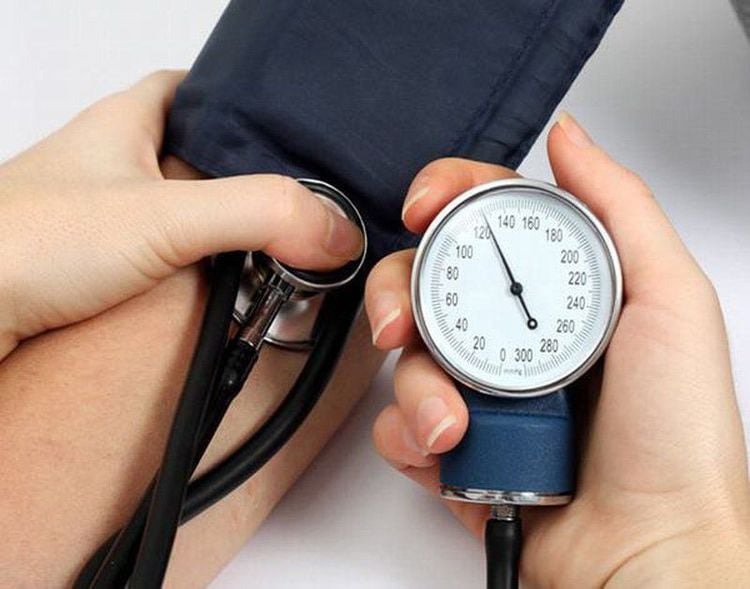
Dấu hiệu phản ứng phản vệ sau tiêm chủng là những cơn suy tuần hoàn cấp có biểu hiện của tụt huyết áp
2. Prevention of dangerous anaphylaxis after vaccination
Vaccines can be made from bacteria, viruses or their toxins, or recombinant from specific antigens. Therefore, preserving vaccines is extremely important to ensure vaccine quality as well as safety, avoiding dangerous anaphylactic reactions after injection.In addition, before and after vaccination, it is necessary to ensure the necessary procedures as prescribed.
After vaccination, the person receiving the vaccine, especially the children, needs to be closely monitored to make sure there are no anaphylactic reactions or other dangerous reactions. Usually, the person receiving the injection must be monitored for at least 30 minutes after the injection because most life-threatening events occur within 10 minutes of the injection.
Any problems encountered after vaccination, the patient should report to the vaccination health facility for timely intervention, and also take notes on the future use of the vaccine.
3. Notes when vaccinating for special risk groups
The group of subjects at high risk of anaphylaxis and other dangerous reactions after vaccination should be noted:Children have had a strong reaction to the previous vaccination. Vaccinate a child who has had a strong reaction to a vaccine. The following vaccinations may have to be administered in hospitals so that the child can be better monitored and can easily be treated in time when a severe reaction occurs.
Subjects at special risk of infection Pay attention to cases of diseases such as bronchial asthma, chronic heart or lung disease; Splenectomized, Down syndrome, HIV infection, premature babies... are at risk for reactions after vaccination.
In children, vaccination should also be considered, considered and indicated with caution. The World Health Organization (WHO) recommends against using live vaccines such as BCG, oral polio, measles for HIV-infected children; Premature babies should be vaccinated in the second month after birth.
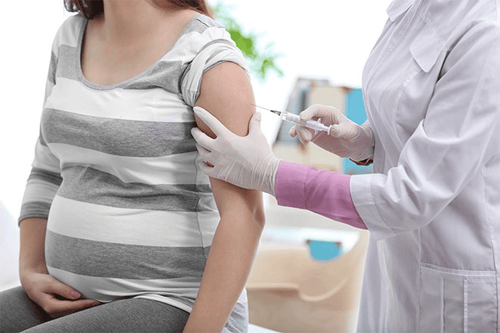
Phụ nữ mang thai cần lưu ý không nên tiêm vắc-xin sống
Currently there is no evidence that the rubella vaccine can cause birth defects, but scientists recommend that women should become pregnant only after receiving this vaccine for at least 3 months.
Premature babies Vaccination for premature babies is similar to that of full-term babies because the immune response in these babies is still good.
However, to avoid the possibility of spreading the disease to others, the use of Sabin vaccine should only be used after the child has been discharged from the hospital.
Some cases of premature babies have a weaker immune response to hepatitis B and Hib vaccines than term babies, so vaccination against hepatitis B for premature babies is done. in 2 ways.
Method 1: inject the first dose at birth, then give it again after 1 month, 6 months and 12 months.
Method 2: wait until the child is 2 months old, inject 3 basic injections at 2 months, 3 months and 8 months old.
If the child is born to a mother with hepatitis B, the first option should be chosen, giving the child immunoglobulin at the same time. As for the Hib vaccine, it can be given to premature infants at 2, 4, 6 and 12 months of age.
After vaccination, whether an adult or a child should be closely monitored for at least 30 minutes at the injection site, because when a reaction such as anaphylaxis occurs, it can be handled promptly. Anaphylaxis, if not handled quickly and accurately, will quickly endanger life. Therefore, the selection of a vaccination clinic is very important, it is not only the quality of the vaccine, but also the qualifications, expertise, and experience of handling possible reactions after vaccination of the vaccines. medical doctor.
Over the years, Vinmec has been famous as a trusted vaccination address for customers with many outstanding advantages:
The 5-star vaccination center has a one-way design, minimizing contact, minimizing cross infection and create private space for customers. Vaccines are diverse, of high quality, of clear origin, and are safe from the stage of registration, preservation to use. Vinmec is also one of the few hospitals that adheres to the preservation and use of vaccines according to the US JCI international standards. Vaccines are preserved by a cold chain meeting GSP standards with a modern cold storage system, allowing vaccines to always keep the best quality. Before injecting, customers are screened with specialist doctors to ensure the best health when vaccinated. 100% of vaccinated customers are monitored and re-evaluated before leaving. Post-vaccination monitoring room is fully equipped with emergency facilities; the team of doctors - nurses are trained in anaphylaxis emergency management to ensure timely and correct treatment when an incident occurs. If there is a need for vaccination at Vinmec, please book an appointment directly at the website or contact the hotline system for detailed advice.
Please dial HOTLINE for more information or register for an appointment HERE. Download MyVinmec app to make appointments faster and to manage your bookings easily.





